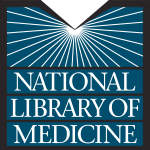- Industria: Library & information science
- Number of terms: 152252
- Number of blossaries: 0
- Company Profile:
The National Library of Medicine (NLM), on the campus of the National Institutes of Health in Bethesda, Maryland, is the world's largest medical library. The Library collects materials and provides information and research services in all areas of biomedicine and health care.
Mutation in a mutant allele which makes it capable of producing the nonmutant phenotype; this may result from restoration of the original DNA sequence of the gene or from production of a new DNA sequence which has the same effect.
Industry:Biology; Chemistry
Mutation in a mutant allele which makes it capable of producing the nonmutant phenotype; this may result from restoration of the original DNA sequence of the gene or from production of a new DNA sequence which has the same effect.
Industry:Biology; Chemistry
Natural pigment containing a fundamental skeleton of four pyrrole nuclei united through the α-positions by four methine groups to form a macrocyclic structure (porphyrin is designated porphine in Chemical Abstracts indexes).
Industry:Biology; Chemistry
Describing a group of organisms more vulnerable to a given exposure than the majority of the population to which they belong.
Note: Susceptibility may reflect gender, age, physiological status, or genetic constitution of the organisms at risk.
Industry:Biology; Chemistry
Describing an animal removed from its mother under sterile conditions just prior to term and subsequently reared and kept under sterile conditions.
Industry:Biology; Chemistry
Description of the complete set of proteins encoded by the genome.
Industry:Biology; Chemistry
Difference in free energy or chemical potential (per unit molal volume) between pure water and water in cells and solutions.
Industry:Biology; Chemistry
Disease marked by weight loss and atrophy of muscular and other connective tissues that is not directly related to a decrease in food and water consumption.
Industry:Biology; Chemistry
1. Adaptive state characterized by diminished effects of a particular dose of a substance: the process leading to tolerance is called “adaptation”.
2. In food toxicology, dose that an individual can tolerate without showing an effect.
3. Ability to experience exposure to potentially harmful amounts of a substance without showing an adverse effect.
4. Ability of an organism to survive in the presence of a toxic substance: increased tolerance may be acquired by adaptation to constant exposure.
5. In immunology, state of specific immunological unresponsiveness.
Industry:Biology; Chemistry
1. Alteration of a cell by incorporation of foreign genetic material and its subsequent expression in a new phenotype.
2. Conversion of cells growing normally to a state of rapid division in culture resembling that of a tumor.
3. Chemical modification of substances in the environment.
Industry:Biology; Chemistry
